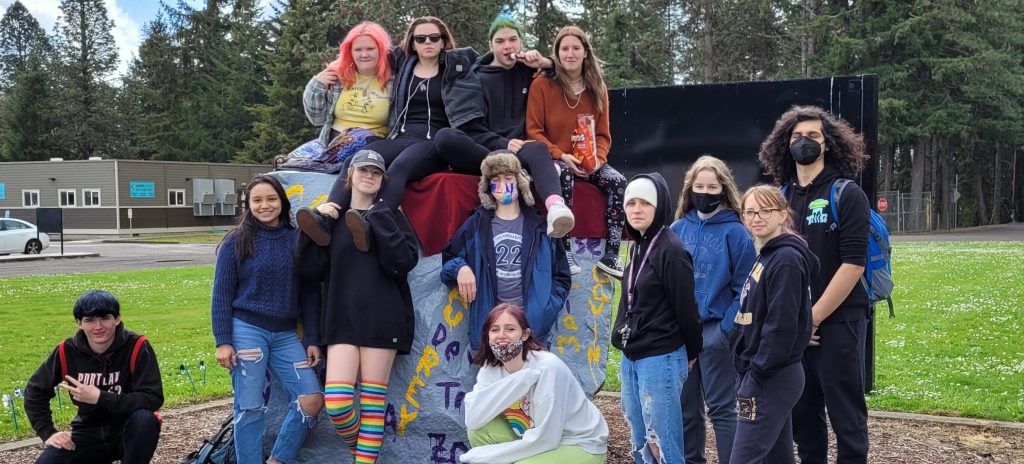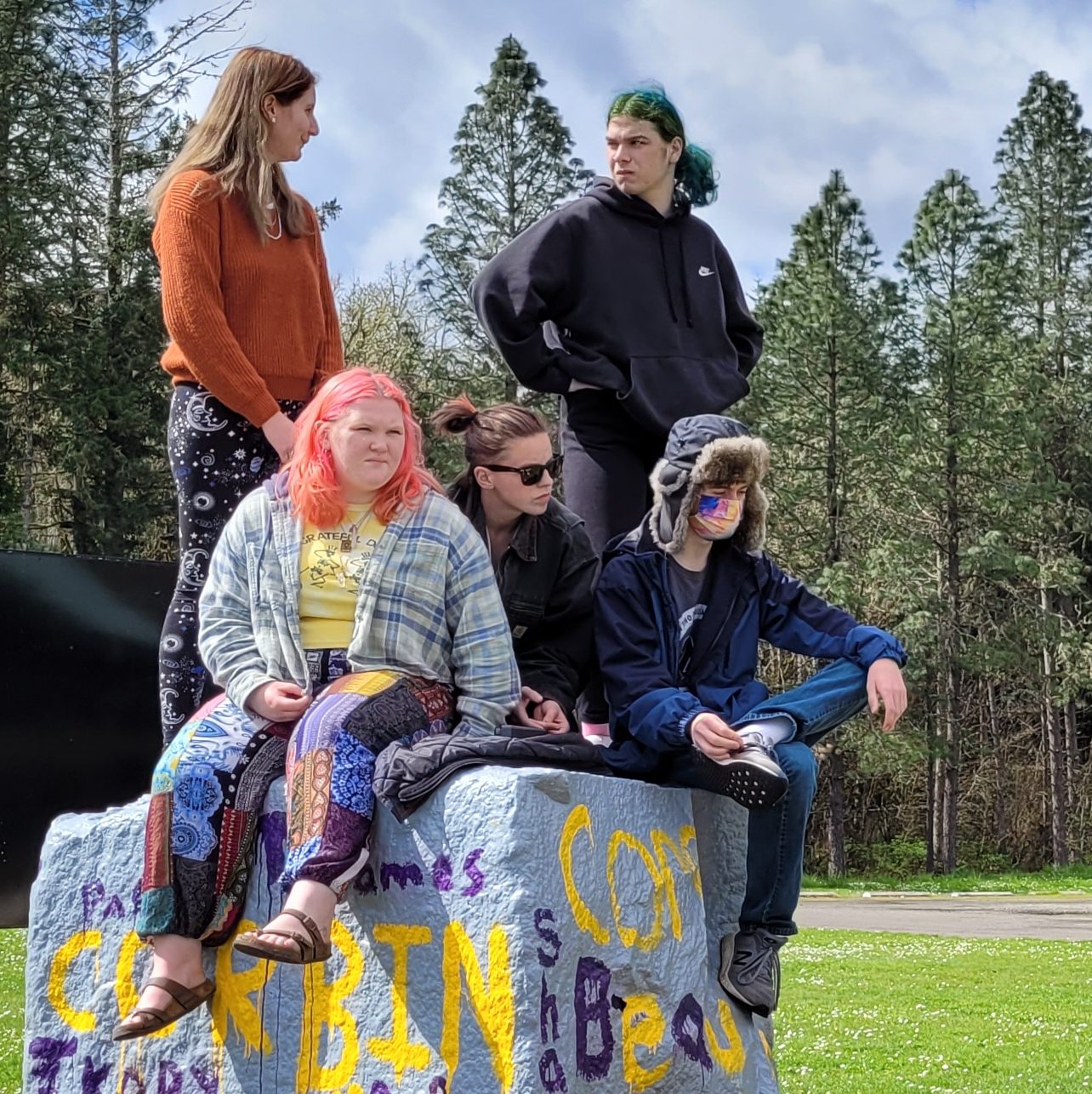
Elmira High School students walked out of class during 4th period on Tuesday in protest of Florida’s House Bill 1557, dubbed the “Don’t Say Gay” bill.
About 16 students gathered around the rock at the front of the school for the protest, organized by senior Clyde Oglesby and junior Rachel Matthews, to show their support for students affected by the bill in Florida and in other states pushing to pass similar legislation.

Oglesby and Matthews said they knew Elmira was in a conservative area so there weren’t going to be many people who attended. They said that many students expressed their support for the event, but were scared to attend out of fear of harassment, being outed to family, or facing punishment for participating.
The organizers talked with Principal Rick Gardner ahead of time to ensure it would be peaceful, with students sitting on the grass or on top of the rock. A few passersby also expressed their support.
Oglesby gave a speech to the crowd from atop the Senior Rock to thank participants and speak more on the bill. He spoke about discrimination in the law toward the LGBTQ+ community.
“What we’re doing is showing that in this community we don’t support those kind of homophobic and transphobic policies, and we don’t support those attitudes,” Oglesby said. He closed his speech with a message to members of the community: “We support queer people in this community, and that’s not going to change.”
The “Don’t Say Gay” bill bans public schools from talking or teaching about sexual orientation or gender identity from kindergarten to third grade and restricts those conversations with older students to what is “age appropriate or developmentally appropriate.”
EHS students said they gathered to use their voices for queer students, teachers and family members who can’t.
“We’re here, and no matter what they say to us, about us, behind our backs or to our faces, we’re staying,” senior Claire Head said.
The bill was proposed by Florida state Rep. Joe Harding as a way to keep parents knowledgeable of their children’s schooling and involved in what’s happening, but members of the LGBTQ+ community and their allies see it as a discriminatory bill that further isolates queer students, teachers and family members.
The law may restrict students from exploring their identities and asking questions about the community by stifling conversations on the topic, according to critics. It also could prompt parents to sue school districts for teachings with which they disagree. They say the bill also could out students by forcing teachers to report to a queer student’s parent if they have reached out on the topic or if they identify differently at school than at home.
LGBTQ+ groups have sued Florida over the law, stating that it violates constitutional rights such as freedom of speech, equal protection, and due process of students and families.





